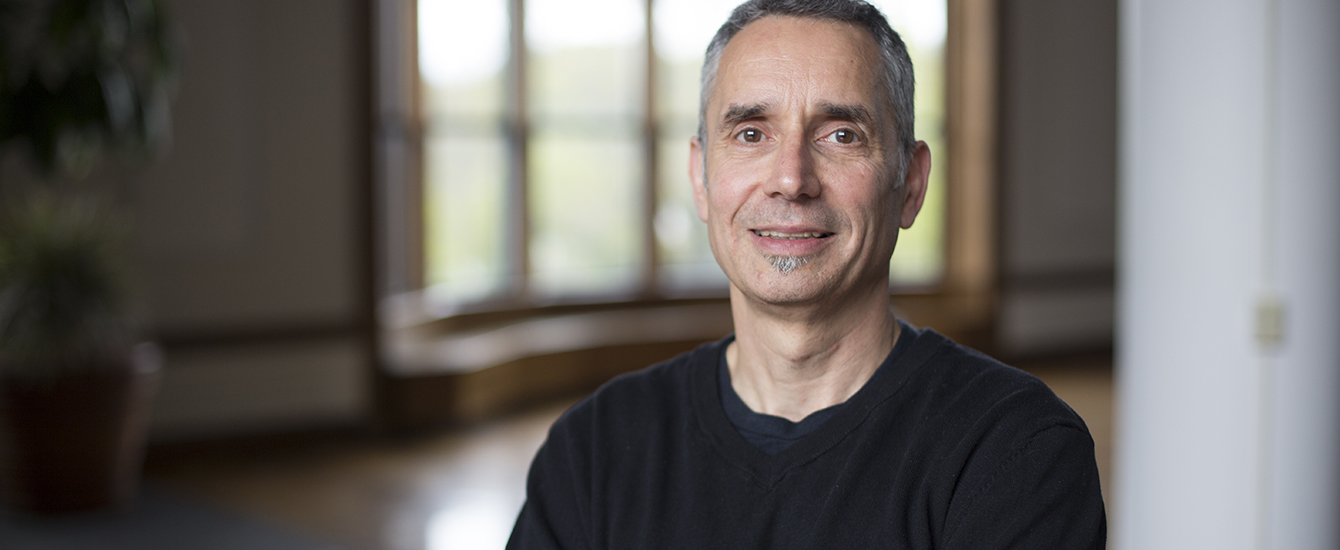A letter to students from Professor Denis Larochelle, chair of the Prehealth Advisory Committee.
These pages are designed to provide information and help you navigate the many requirements and options associated with finding the right career choice within the many health professions. We hope the website is useful to you. Most importantly, please visit me or any member of the Prehealth Advisory Committee for more in-depth and personal discussions about your hopes and plans for the future. Our advising services are available to all current Clark students and alumni. We offer individual attention and many other special features, including awards and prizes.
More detailed information about medical careers and how to pursue them is available by choosing the Planning Your Path, Applying to Professional Schools, Careers and Outcomes, and Resources options located in the menu bar at the top of the page.
If you do not read anything else on this website, please read and consider this: to make yourself the strongest possible candidate for medical school or other doctoral-level programs, you must:
- show that you can DO THE WORK;
- convey that you are PASSIONATE about something (not necessarily related to medicine); and
- demonstrate that you have EXCELLED at something (not necessarily related to medicine).
These three qualities will help convince the schools to which you apply that you will be able to contribute in a meaningful way to their profession.
General information on pursuing a career in medicine is presented every August during orientation by Dr. Denis Larochelle, chair of the Premedical and Predental Advisory Committee and professor of biology. Please check out his PowerPoint presentation to get an overview of things you should be thinking about during your college career, and how you can make the most of your undergraduate experience. Please fill out this form if you anticipate pursuing a career in healthcare and to be placed on our email list. You can email the form to premed@clarku.edu or drop off the form at Room S228 in the Sackler Sciences Center (slip the form under the door if the office is not open).
Do you have to be superhuman to become a doctor? No. Doctors are real people. However, they had to work hard and understand the system along the way to becoming a doctor. You will have to as well. Understanding how the system works, what is expected of you, and when you should do what will increase your chances of getting accepted to the school of your choice, and will make the whole process much less intimidating. Most of you will succeed if you plan early, make a total commitment, and follow our advice. It is never too late to start the process, but the sooner you understand what you need to do, the better prepared you will be.
Professional schools in the health-related professions (see Types of Careers) will ask three questions:
- Can you do the work?
- Do you know what you are getting in for?
- Do you have the necessary personality traits?
To answer the first question, medical schools will look at your GPA and standardized exam scores. Comments from your faculty instructors in your committee letter of recommendation may also help to assess your academic potential. To learn more about what you can do to improve your “numbers,” see Getting the Grades and Standardized Exams.
You can help to answer the second question by putting yourself in a clinical environment so that you know whether you will faint at the sight of blood, so that you have experienced what it’s like to change a bedpan, and so that you understand the enormous amounts of paperwork and red tape involved in medicine. To learn more, see Extracurricular Activities.
To help answer the third question, it almost does not matter what you do; what matters is how you do it. Think about acting in a professional manner (i.e., doing the right things at the right time for the right reasons — while no one is looking), demonstrating honesty and compassion, and being the kind of person you would want as your own doctor. Can you provide evidence that you have integrity, curiosity, and commitment? If so, this information must then be conveyed to the health professional schools in the clearest and most concise manner — just as you would convey to a patient information about their medical condition. The interview will play a critical role in answering the latter two questions.
In addition to the three questions above, each school will attempt to assess the fit between you and their school. The interview and the secondary application are your opportunities to address this final question. To learn more about answering all these questions, see Letters of Recommendation, Research Opportunities, and Application Process.
Timing is also critical. To learn more about timelines, check out Choosing Your Courses, Choosing a Major, Top 20 Deadlines, and Timeline for Applying.
There are also many details of the application process, including the Personal Statement, Choosing Schools, Joint Degree Programs, Interviews, and Financing Medical School that you should explore.
More comprehensive discussions of some of these topics and an excellent overview of some of the most important things you need to know are presented in the frequently asked questions (FAQ) and in the list of Dos and Don’ts.
There is useful information for Underrepresented Applicants and International Applicants and several other pages listed under “Explore Even More” on the Resources page (Health Professions Links, Prehealth Advising Websites, Prehealth Publications, and Reading Lists).
If you were not accepted to any of the schools to which you applied, or if you are starting the process after having graduated, check out ways you can enhance your credentials or explore alternatives in What if I’m not accepted?

